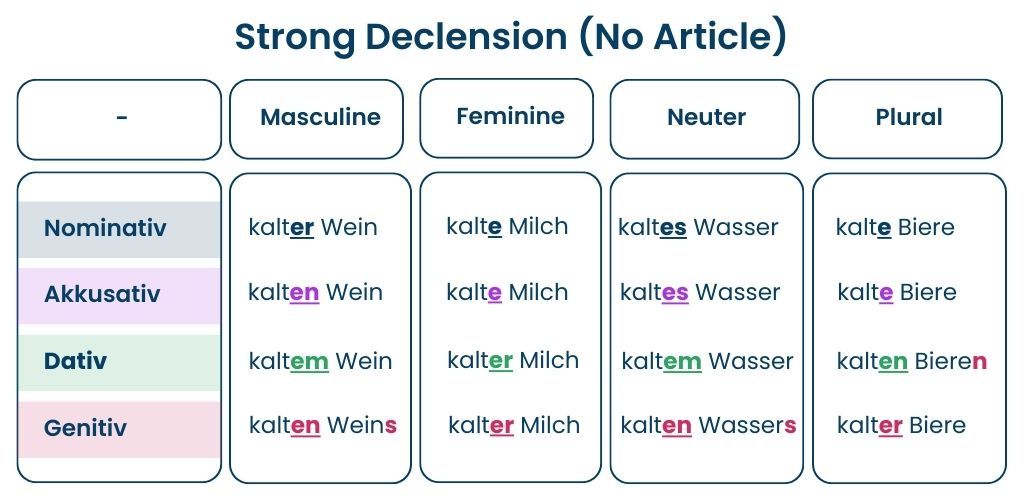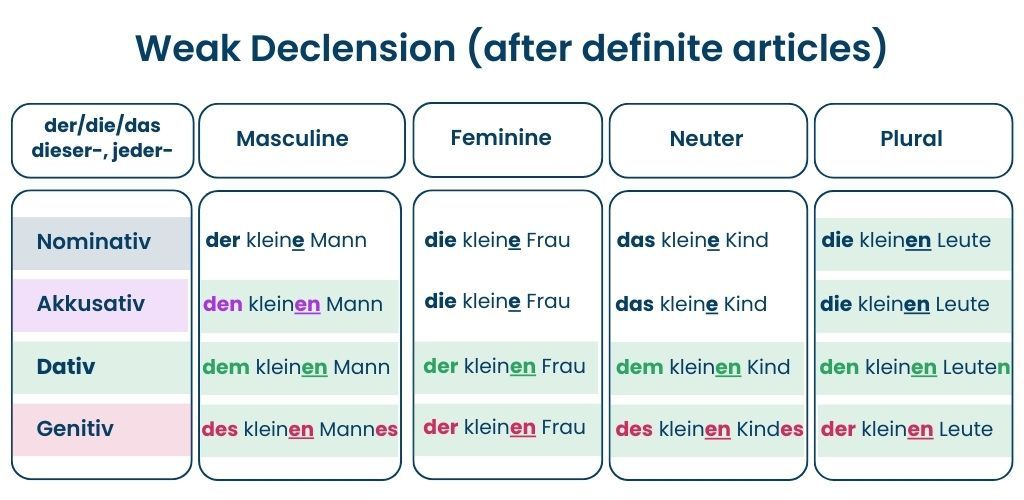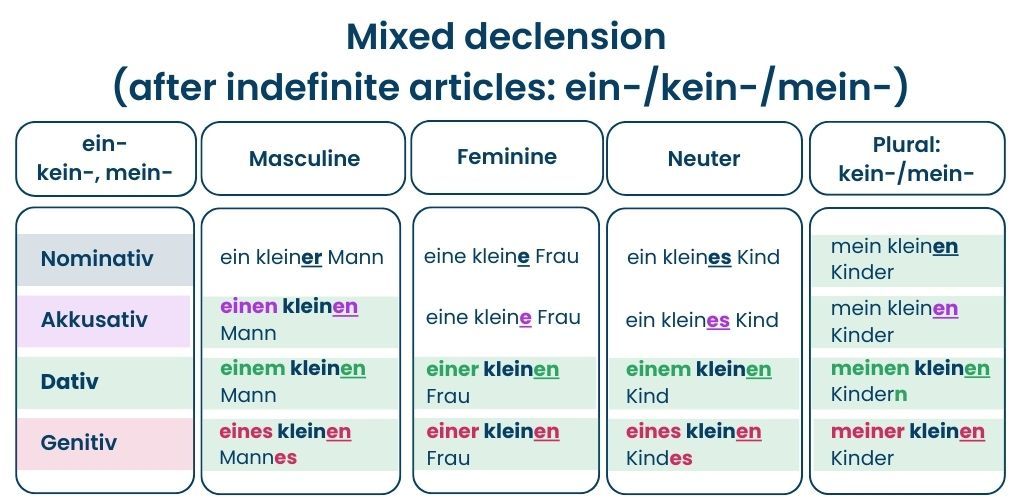Adjective declension means changing the adjective's ending so that it agrees with a noun in terms of gender, number, and case. We can only decline adjectives that come before a noun in German.
There are three declensions of adjectives: strong, weak, and mixed. Let's see how they differ.
Strong Declension of Adjectives
Rule 1: In some cases, we do not use an article before a noun. An adjective "takes over" the function of the article and is declined like definite articles. We call it the strong declension.
German
English
Wir servieren kaltes Bier.
We serve cold beer.

Notes:
1) Masculine & Neuter in Genitiv: need to add -(e)s behind the noun.
2) Plural noun in Dativ form: need to add -n behind the noun.
Weak Declension of Adjectives
Rule 2: We have to use the weak declension if the adjective is placed
- before a noun but after the definite article (der/die/das)
- after words like dieser (this/these) / welcher (which) / jeder (everyone)/ mancher (some) / alle (all)
Rule 3: To decline adjectives in the weak position, we use different endings. You should:
- put the ending -e in singular for nominative case (male, female, and neutral forms).
- also use the ending -e in singular for accusative case, but only female and neutral forms.
- use the ending -en for the rest, including plural forms.
Note: The case marker is not carried by the adjective, but rather by the particle before it.
German
English
Er liebt dieses alte Hotel.
He loves this old hotel.

Mixed Declension of Adjectives
For Mixed Declension, adjective ending is with either strong or weak declension.
Rule 4: We use mixed declension if the adjective is placed before a noun but after
- an indefinite article (ein)
- a possessive pronoun (mein, dein, etc.)
- a negation article (kein)
Rule 5: We use the following endings for adjectives in the mixed declension:
- For singular nominative forms: -er for male, -e for female, -es for neutral.
- For singular accusative forms: -e for female and -es for neutral.
- For the rest, including plural forms: -en.
German
English
Das ist unser schönes Haus.
This is our lovely house.

